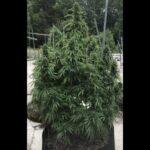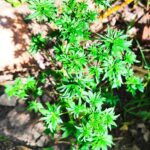‘Addiction’ is a controversial concept. To my mind, the jury is out on the whole question of what addiction even is, particularly in the context of substances such as cannabis or coffee and ‘tonic’ use.
Most days, my go-to sources for understanding addiction would be Ken Kesey’s One Flew Over the Cuckoo’s Nest and Carl Hart’s Drug Use for Grown-Ups.
Withdrawal is not the issue here, incidentally. Clearly, even with cannabis or coffee, stopping use abruptly can result in withdrawal symptoms. But equally clearly, withdrawal per se does not an addiction make. Withdrawal is a symptom of ceasing use. The very fact of experiencing withdrawal symptoms indicates a capacity to stop habitual use, in fact.
But it’s also fact that a small minority of people who enjoy a substance like cannabis do go on to develop a habit that they cannot contol. Problematic use of cannabis is a reality for some people. Most of us will know someone who finds that the costs of their chronic cannabis use massively outweigh the benefits and wants to stop, but can’t.
A typical mainstream expert take on addiction is that something like 10% of consumers of a substance such as cannabis meet the standard criteria for addiction.
‘Addiction’, however defined, is a behaviour – problematic compulsive behaviour. The big question is – ‘Where are its roots?’
The popular ‘common sense’ view is that the real root of addiction is the substance itself. The substance is decisive. The substance makes you behave this way.
I suspect otherwise.
The big unanswered question for me is this:
If the vast majority of people don’t become addicted, can the root cause be the substance? With such wildly varying estimates for rates of cannabis addiction, surely the least likely explanation is that cannabis itself can short-circuit people’s capacity for self-control?
In other words, can we really talk of ‘cannabis use disorder’?
My non-expert take is that all the decisive factors in addiction are personal – i.e., subjective and social contexts in which bad choices or reckless, impulsive choices start to make as much sense as the good or sensible ones…. or much more sense….
Emotional pain, bleak life prospects, the brutal absurdity of the human condition – dial up the impact of any one factor high enough and ‘fuck it, why not?’ is already its own best answer, every time.
With cannabis and coffee, anyway, the context of impulsiveness is normally relatively mundane – like the prospect of another demanding or dreary day at home or work.
But that’s just like my opinion, man….
If cannabis is a daily feature of your life, then it really is common sense to familiarize yourself with the opinions of qualified experts, however justified your cynicism about what’s actually driving the findings of psychiatric research into addiction these days.
Dr. Peter Grinspoon is a primary care physician at Massachusetts General Hospital (MGH) and an expert on medical cannabis. He recounts his own experience with addiction in Seeing Through the Smoke and Free Refills.






